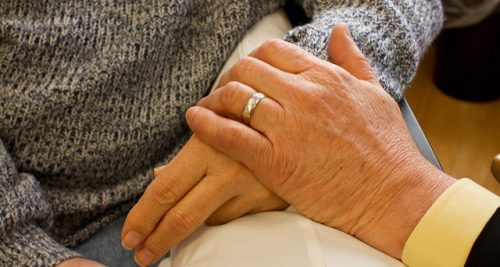The number of cancer cases diagnosed every year is steadily increasing. Many of us dread the diagnosis of cancer, even associating death to the disease. While it is true that some cancers are fatal and that some are diagnosed in the later stage which will mean reduced prognosis, more than ever, research and early diagnostic screenings are put in place to provide early and better detection, up to date evidence-based treatment regimen and continuous drug development. It is often said that surviving cancer is a battle and each warrior has a higher chance of winning when one is prepared and apt with the right weapons to succeed.

Experts recommend to mentally, emotionally as well as financially prepare for the long battle ahead. It is okay to go over moments of denial, anger, and bargaining because after all, it is the standard process of anticipated loss. Since it can be overwhelming to process, it is best to list down all your inquiries and concerns about cancer and your treatment for you to make sure the doctor will answer all your questions. Often, the reaction of the patient to the diagnosis is numbness and shock, and usually, they are unable to retain and process new information; thus, it best to ask a friend or a loved one to accompany you during cancer treatment conferences and doctors’ consultation. In addition, patients should take an active role in their treatment. Seek second or third opinion if you need to and also, if you are open to complementary and alternative therapies you can also do so. Take the courage to ask hard questions: worst-case scenarios, survival rates, effects of chemotherapy and radiation and possible surgeries. It is essential to remember that chemotherapy can cause hair loss. Maybe, purchasing headscarves, bandana and wigs might be necessary. Also, removal of the affected area might also be warranted to halt the spread of cancer.
It is best to plan for the logistics of treatment as well as, some of the responsibilities that you have to give up focusing on your chemotherapy and treatment modalities. Usually, the amount of frustration and anxiety associated with the treatment isn’t really about cancer itself but rather due to the practical concerns. For instances, the transportation going to and from the hospital, the assigned caregivers for the children or pets, the status of your work and you will shoulder your workload and the financial woes that will accompany the treatment and loss of a job. This is where the support system takes in, don’t be afraid to ask for help and assistance; most of the time, people are happy to help you out in any way they can. They are just waiting for you to tell them what you need. Ask favors from friends and loved ones to take on a specific job. For example, assign someone to pick up the kids or a friend to walk the dogs.

It is always best to see the positive outcome of any situation, but it is optimal to consider both ends of the spectrum. It is wise to hope for the best but also, prepare for the worst. It can be grotesque to entertain thoughts of death and dying. However, it is a fact of life and inevitable.
